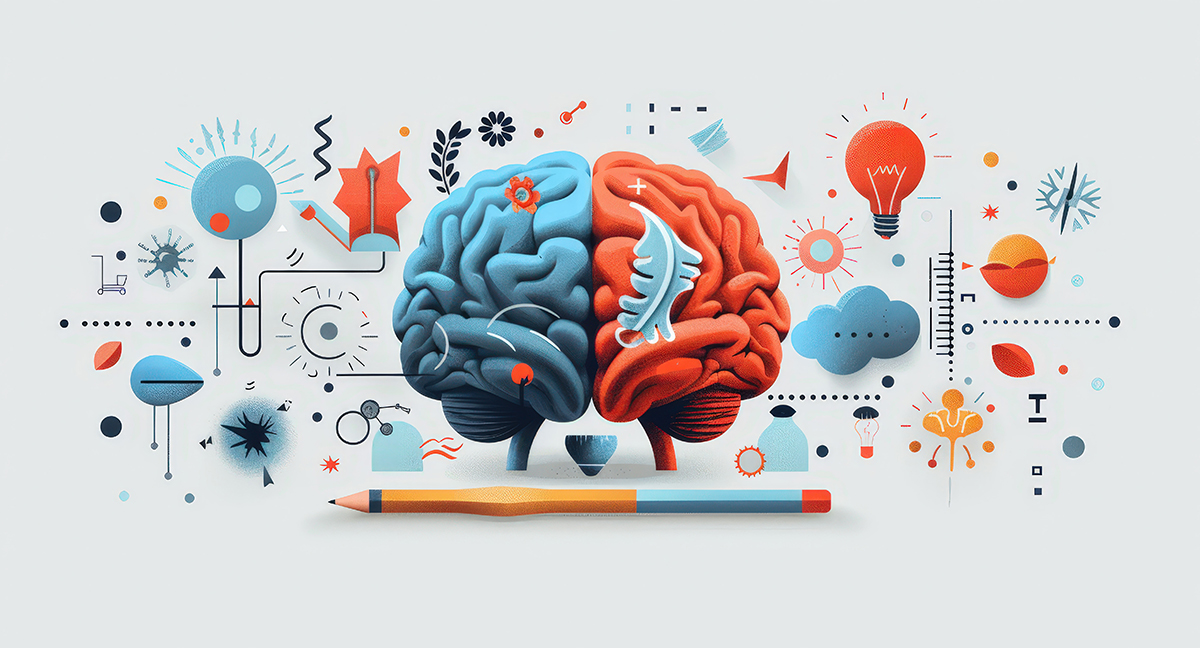Content paid for by The Brain Center
When Dr. April Krowel decided to start her own practice, she was prepared to tackle some challenging cases. She loves confronting a conundrum and facing it head-on. That’s why she opened the doors to The Brain Center, to create a haven for anyone who felt they didn’t already have one.
A clinical neuropsychologist, Krowel has experience with a variety of neurological disorders, medical diagnoses and psychiatric conditions, specifically those affecting memory and cognitive function. She has additional qualifications that allow her to assess people of all ages for various cognitive conditions. The Brain Center frequently tests for different conditions such as learning disabilities, ADHD, autism, dementia, Alzheimer’s disease, and others.
“We serve a diverse population,” she says. “We have therapists who see children, adolescents, families, couples, groups, individuals, you name it. We perform a variety of testing on people of all ages. We also serve the underserved in a lot of ways. At one point I was one of very few neuropsychologists who took Medicaid. We see folks from rural, suburban and urban areas, the entire political spectrum, LGBTQ+, people experiencing substance abuse, and many first responders and veterans. We learn something from everyone who comes into our office.”
An Army combat veteran herself, Krowel knows the value of empathy in practice regardless of what patients are facing. That’s why she has chosen a staff that is uniquely qualified to provide services for all kinds of unique conditions. This includes aerospace aviation evaluations, school psychologists, legal and forensic consultations, alongside a driving rehab specialist who can help assess, train and provide accommodations for drivers.
“Our certified driving rehab specialist is amazing and was voted Employee of the Year,” Krowel says. “She works with people who have heightened anxiety, autism and spina bifida, along with other challenges that can affect driving. She evaluates you in-clinic and then takes you on the road with low-level accommodations, and can teach additional skills for safe driving.”
Krowel and her staff believe in taking each patient as an individual and understanding the unique set of circumstances that may have led to their situation, while also developing a treatment program that accounts for those factors.
“There are so many layers to any underlying condition and no two cases are the same,” Krowel says. “I personally experienced a traumatic brain injury and I saw firsthand what kind of effect it can have. We try to understand what led to every situation and how best to treat it.”
The Brain Center staff customizes treatment plans to help patients have favorable outcomes, using a combination of occupational therapy, cognitive behavioral therapy and talk therapy to address all parts of any diagnosis.
“We use a variety of treatment methods to address every part of our patients,” Krowel says. “Talk therapy is great for developing coping strategies. Cognitive behavioral therapy, along with prolonged exposure therapy and cognitive reprocessing therapy, are highly effective for people who have experienced trauma. It varies from patient to patient.”
As we are faced with dark and cold months, Krowel also wants people to be aware of the potential for seasonal affective disorder (SAD).
“About 5% of adults experience SAD,” she says. “Those folks experience sadness and depression associated with darker days and lower temperatures. Fatigue, sleeping too much or not enough, and a loss of interest in hobbies and other activities, is also common. Those with SAD experience those symptoms for about 40% of the year. It can take a real toll on people’s mental and physical health.”
For those suffering from SAD, she recommends lots of self-care and professional support for those who are unable to cope with their symptoms.
“Talk therapy can be great for developing coping mechanisms, just until you can manage symptoms on your own,” she says. “Exercise is a natural antidepressant, and eating a good diet is always good for our mental and physical health.”
She also recommends blood work to see if a vitamin D supplement could help, and considering a SAD therapy light that mimics sunlight for those with heightened symptoms.
The Brain Center has three locations to provide expanded options for the northeast corridor of the city. Testing is primarily done in the McCordsville location, but patients can also be seen at the Castleton or Fishers locations for convenience.
“We try to make it easy to get in,” says Krowel. “There is a paperwork process, but most people can get in within about a week unless they’re seeking testing. That gets booked further out.”




